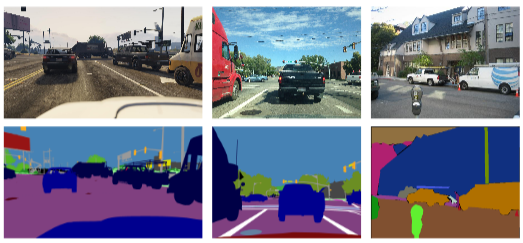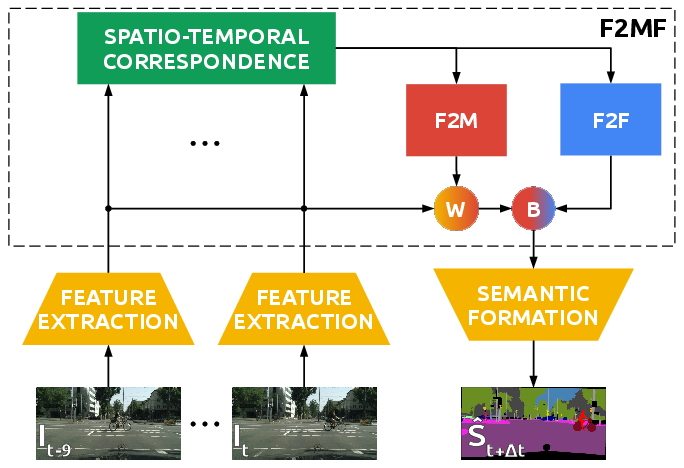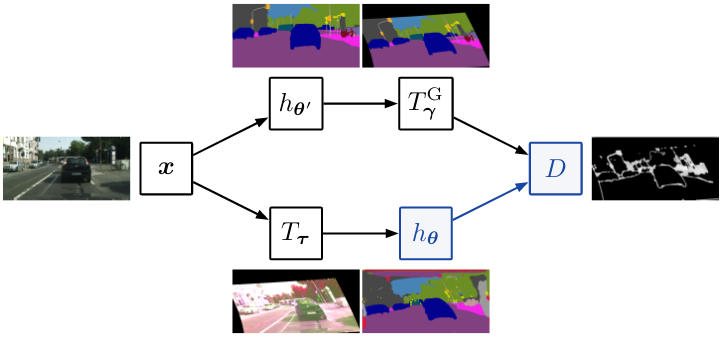Multi-domain semantic segmentation with overlapping labels
-
we enable training and evaluation
over incompatible taxonomies
-
our method expresses each dataset class
as a union of disjoint universal classes.
-
the resulting model won the semantic segmentation contest at
Robust Vision Challenge at ECCV 2020
and set the new state of the art on
WildDash 2.
|
 [bevandic22wacv]
[bevandic22wacv]
|
|
Dense Semantic Forecasting in Video
by Joint Regression of Features and Feature Motion
-
we express dense semantic forecasting
as a causal relationship between the past and the future
-
we complement convolutional features
with their respective correlation coefficients
across a small set of discrete displacements
-
our single-frame model
does not use skip connections along
the upsampling path;
hence we are able to forecast
condensed abstract features at R/32
-
we present experiments
for three dense prediction tasks:
semantic segmentation,
instance segmentation
and panoptic segmentation`
|
 [saric21tnnls]
[saric21tnnls]
|
|
Densely connected normalizing flows
-
we show how to apply dense connectivity
to normalizing flows
-
the resulting inductive bias assumes
that some useful features are easier to compute than the others
-
however, straight-forward skip-connections preclude bijectivity
-
hence, we concatenate the noise
after conditioning on previous representations
|
 [grcic21neurips]
[grcic21neurips]
|
|
A baseline for semi-supervised learning of efficient semantic segmentation models
-
we show that one-way consistency with clean teacher
outperforms other forms of consistency
(e.g. clean student or two-way) both in terms
of generalization performance and memory efficiency
-
we propose a competitive perturbation model
as a composition of a geometric warp and photometric jittering
-
we observe that simple consistency scales better than Mean Teachers
in presence of more labels or more unlabeled data
-
we experiment on efficient models due to their importance
for real-time and low-power applications.
|
 [grubisic21mva]
[grubisic21mva]
|
 [bevandic22wacv]
[bevandic22wacv]
 [saric21tnnls]
[saric21tnnls]
 [grcic21neurips]
[grcic21neurips]
 [grubisic21mva]
[grubisic21mva]